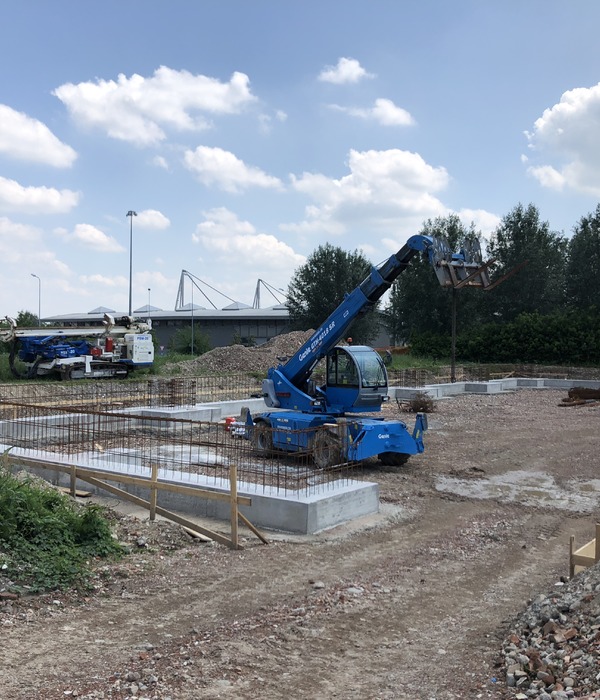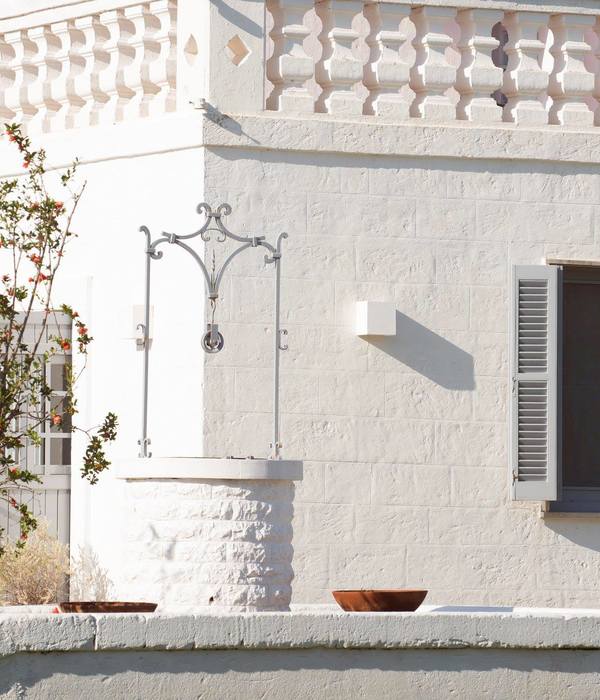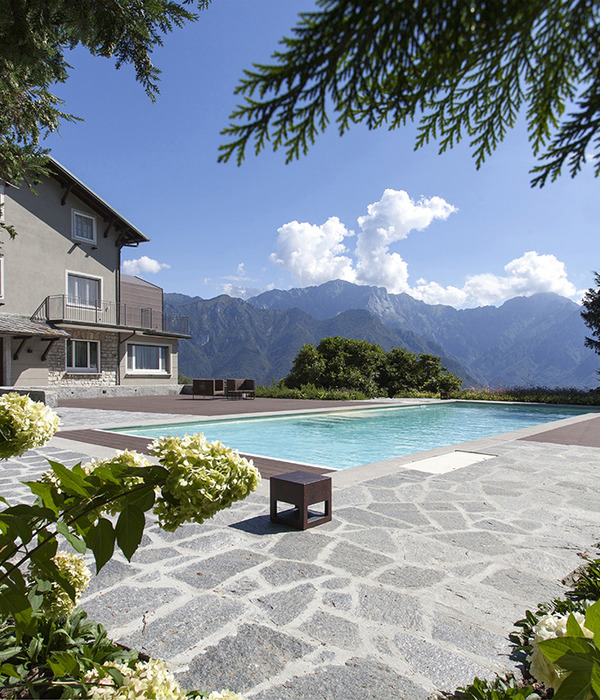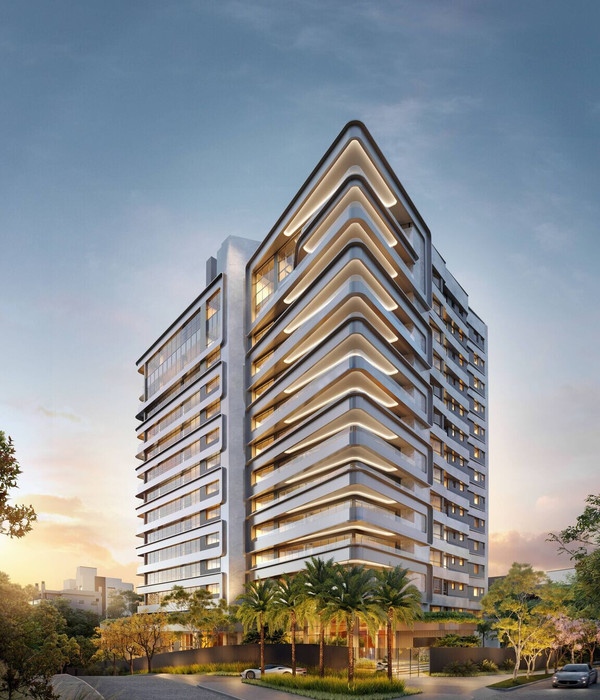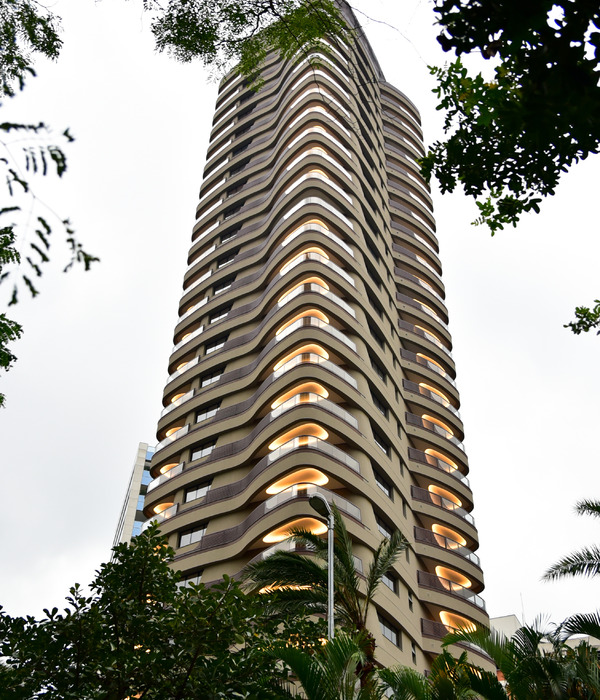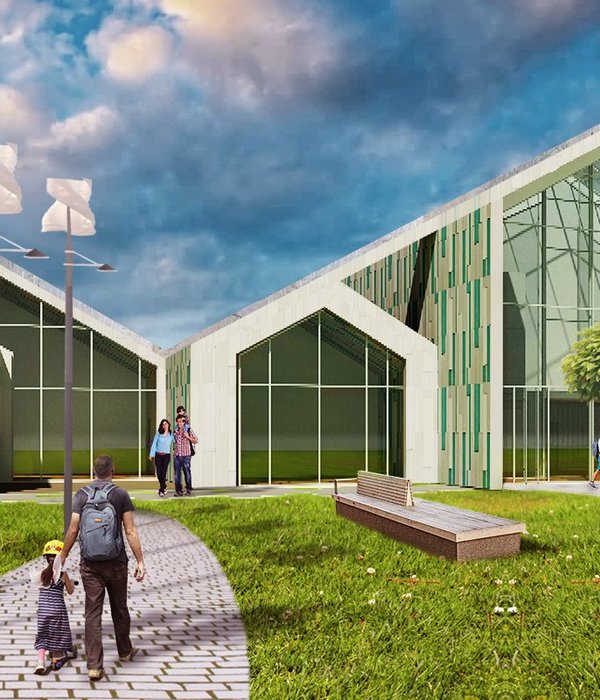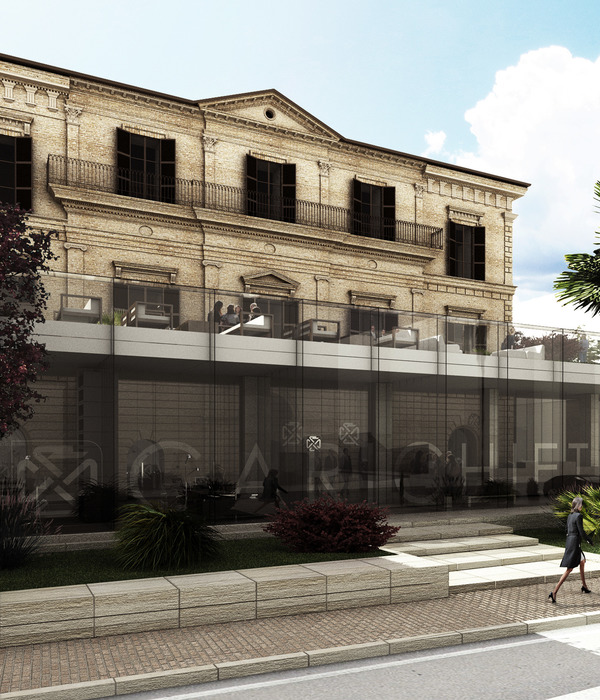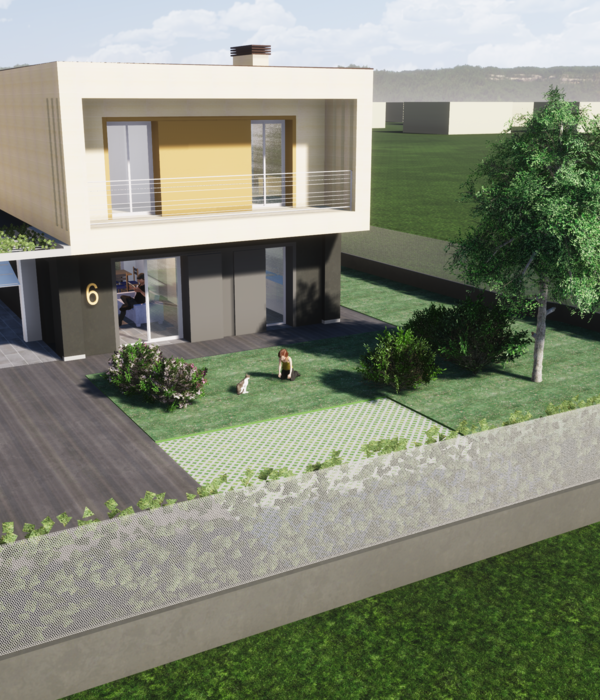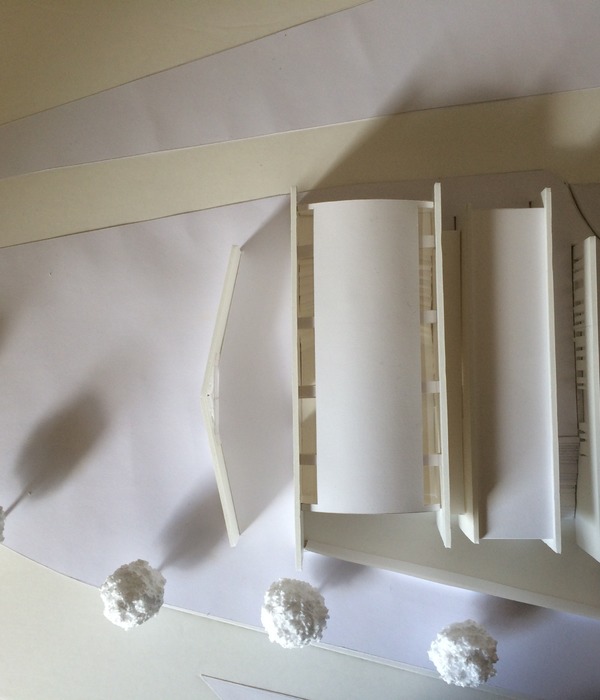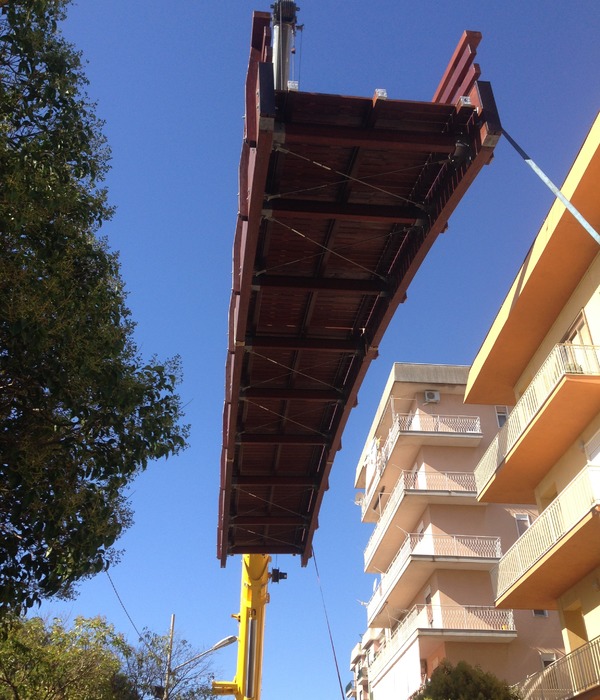© Leonid Furmansky
列昂尼德·弗曼斯基
架构师提供的文本描述。从街道上看,这座房子就像一个宽边的玻璃亭子,从坚实的混凝土基座上升起。它的直率,灯笼般的公众形象得到了客房的坚实形式的补充,它的背后羞怯地转向街道。他们在一起形成了一个游行入口,首先是通过缓缓的楼梯进入草地,然后经过他们之间,露出对游泳池的窥视,以及对场地长度的看法。
Text description provided by the architects. From the street, the house appears as a wide-brimmed glass pavilion rising from a solid concrete base. Its forthright, lantern-like public face is complemented by the solid form of the guest house, its back turned coyly to the street. Together they form a processional entry, first approached by gentle stairs cut into the grass, then passing between them to reveal a peek at the pool, as well as views of the length of the site.
© Leonid Furmansky
列昂尼德·弗曼斯基
主房子的底层内部通过客厅和厨房的巨大滑动玻璃门水平扩张。体积表示为一个简单的盒子,其中包含一个较小的盒子,其中有化妆室,楼梯,储藏室,和机械系统,包裹在未经处理的框架质量冷杉,选择其温暖和触觉的性质。带有结构冷杉甲板的钢梁天花板与空间的南边长度相结合,在上面和下面产生微妙的材料移动,将视野固定到室外。这座高耸的天花板与较低的干墙天花板形成了鲜明对比,后者将色彩和纹理调色板转向厨房和餐饮区的圆滑、简单、白色的橱柜-这是厨房色彩和活动的极简化设置。
The main house’s ground floor interior expands horizontally through the massive sliding glass doors of the living room and kitchen. The volume is expressed as a simple box that contains a smaller box, which houses the powder room, stairs, pantry, and mechanical system and is wrapped in untreated framing-quality fir, chosen for its warm and tactile qualities. A ceiling of steel beams with structural fir decking engages the southern length of the space, creating subtle material shifts above and below to frame the views to the outdoors. This lofty ceiling provides a contrast to the lower drywall ceiling that shifts the color and texture palette toward the kitchen and dining area’s sleek, simple, white cabinetry—a minimalist setting for the colors and activities of the kitchen.
© Leonid Furmansky
列昂尼德·弗曼斯基
游泳池就在这个公共区域的外面;当滑动门打开时,这个过渡就变得宽敞、无缝和直接,把房子本身变成一座游泳池式的房子,并把它的足迹扩大到远远超出墙壁的范围。
The pool is placed right outside this public area; when the sliding doors are open, the transition is expansive, seamless and immediate, converting the house itself into a pool house of sorts, and expanding its footprint well beyond its walls.
© Leonid Furmansky
列昂尼德·弗曼斯基
First Floor Plan
一层平面图
楼上的空间以同样的直截了当的方式组织起来:周边的地板到天花板的玻璃连接着树冠、天空和市中心的天际线。整个西面端专用于一个15英尺深的门廊,紧靠在树梢上,在舒适、受保护的环境下,吸引了一种对户外的感觉体验。
Upstairs spaces are organized in the same straightforward approach: perimeter floor-to-ceiling glass connects interiors to the tree canopy, sky, and distant views to the downtown skyline. The entire western facing end is devoted to a 15-foot-deep screened porch nestled into the treetops, inviting a sensory experience of the outdoors in a comfortable, protected setting.
© Leonid Furmansky
列昂尼德·弗曼斯基
Second Floor Plan
二层平面图
客房兼有家庭办公室和艺术工作室的双重功能,它的玻璃墙将视野从入口处和室外空间延伸到室内。就像主房间的空间策略一样,客房被认为是一个盒子里的一个盒子。里面的盒子里有橱柜,把浴室和前厅隔开,同时放置折叠的桌子和抽屉,还有一张大床,在需要的时候可以展开。
The guest house doubles as a home office and art studio, its glass wall framing views to the activity inside from the entry court and the outdoor spaces beyond. Like the spatial strategy of the main house, the guest house is conceived as a box within a box. The interior box contains cabinetry and separates the bathroom from the front room while housing a fold-out desk and drawers, as well as a queen size bed that unfurls when needed.
© Leonid Furmansky
列昂尼德·弗曼斯基
在物质对话中,浇铸混凝土是占主导地位的声音,其两英尺宽的胶合板的残余形成了纹理化的表面,足以捕捉转瞬即逝的阴影并使表面生动活泼。主楼的混凝土墙应对了德克萨斯州气候的挑战-较小的外墙起到缓冲作用,抵御恶劣的德克萨斯阳光,而较厚的内墙则起到热飞轮的作用,即使在酷暑时,室内温度也能保持稳定。在最热的季节里,8英尺高的悬垂进一步减轻了热量的增加,在此期间,夏季的阳光没有穿透南方的阳光,而在冬季的几个月里,欢迎阳光照射到居住地区。
Cast-in-place concrete is the dominant voice in the material conversation, the remnants of its two-foot-wide plywood forms texturizing the surface just enough to catch fleeting shadows and animate the surfaces. The main house’s concrete walls address the challenges of the Texas climate—the smaller exterior wall acts as a buffer against the harsh Texas sun while the thicker interior wall acts as a thermal flywheel, allowing interior temperatures to remain steady even in extreme summer heat. Eight-foot overhangs further mitigate heat gain in the hottest season during which no summer sun penetrates the house on the southern exposure, while welcome sunlight washes into the living areas in winter months.
© Leonid Furmansky
列昂尼德·弗曼斯基
从街道的最低点移动到西边的最高处,房子看起来舒适地塞进了小山里,它的开口朝向轻柔的舞蹈场景休息和自然。它的简单形式放大了对细节的关注,这些细节可以吸引日常生活中的简单行为。
Moving along the site from the lowest point at the street to the highest at its western edge, the house appears comfortably tucked into the hill, its openings oriented toward lightly choreographed scenes of respite and nature. Its simplicity of form magnifies the attention to detail that can enchant the simple acts of every day life.
Architects Mell Lawrence Architects
Location Austin, United States
Lead Architects Mell Lawrence, Hector Martell
Design Team Mell Lawrence, Hector Martell, Elizabeth Baird, Megan Mowry, Erin Curtis (interior design)
Area 4285.0 ft2
Project Year 2016
Photographs Leonid Furmansky
Category Houses
Manufacturers Loading...
{{item.text_origin}}

